Speed Secrets: The Apex Interviews Ross Bentley
If you’ve ever tried to get just a bit faster on track, or spent your time looking for ways to squeeze the very last tenths of a second from your race car, you'll love our guest this week: Ross Bentley - performance coach, racing driver and accomplished author.
Ross is known in the performance driving world for ‘Speed Secrets’, his fascinating series of books and podcasts which have inspired scores of enthusiasts to improve their own track driving. He joined us this week to talk about his career, the finer points of racing performance, and all things fast driving.
Hector Kociak interviews Ross Bentley for The Apex by Custodian. Recorded and Produced by Jeremy Hindle and Guillaume Campos. Transcribed by David Marcus. Edited by Hector Kociak & Charles Clegg.
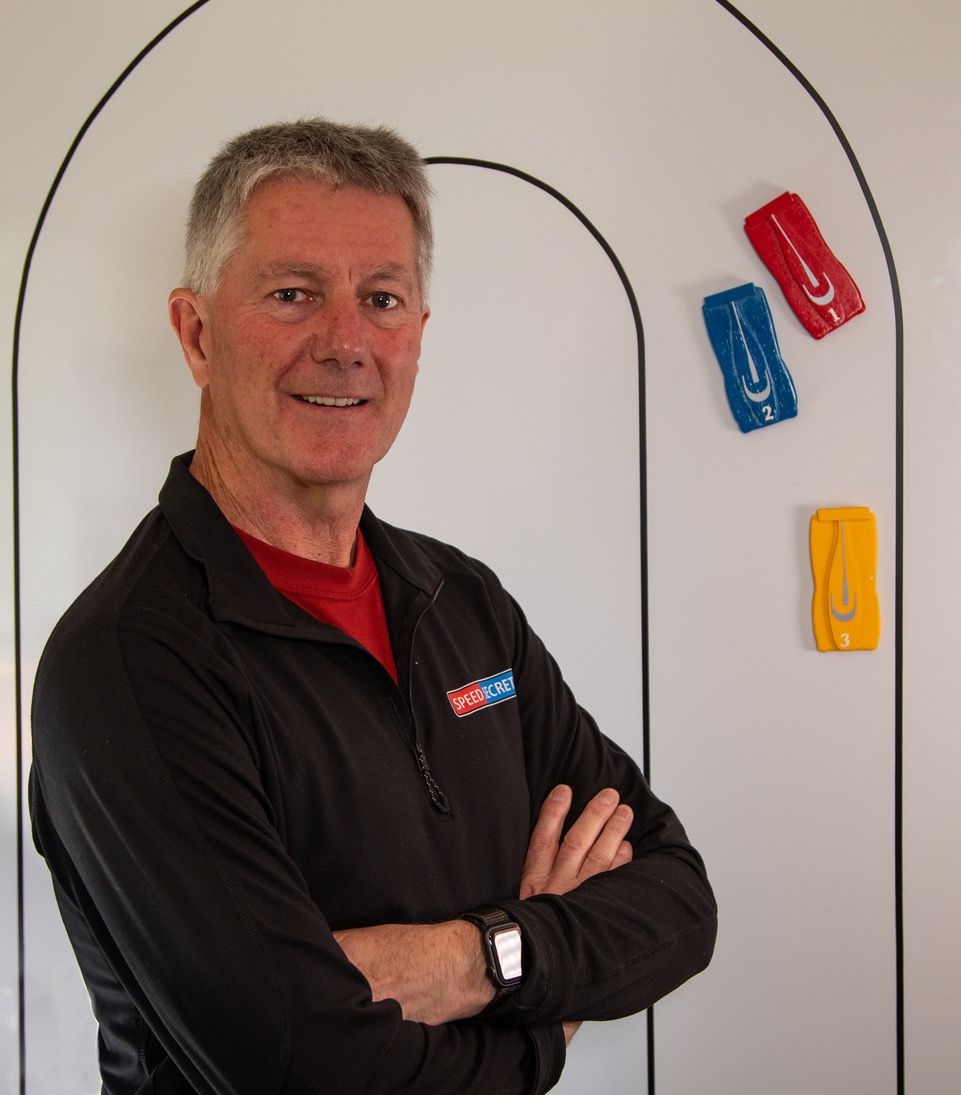
Could you tell us a bit about your first experiences with cars, and how you eventually got into competitive motor racing?
Like many drivers, I believe it was through my dad. My father took me to a race when I was five years old; apparently that night I told my mom and my dad that I'm going to be a race car driver. You know when you're five years old you're going to be what, a fireman, an astronaut, or a race car driver, right? Fortunately I never grew up, I stayed a five year old most of my life - and here I am almost 60 years later still playing this race car driver thing!
Obviously I'm a race driver coach now, but that's how I got into it. Then there was just going to the track. My father worked on race cars and built race cars. Mostly oval tracks, like sprint cars, super modifieds, that kind of thing, in America and Canada where I was born. I would just be at the track most weekends helping my dad, pretending to be a mechanic on the car. When I got to the age where I could finally go and start racing, well… the very quick story is that I also played a lot of tennis as a kid. For a while, I thought I was going to make it as a tennis pro. Then I found out that I couldn't afford to compete with tennis players who had wealthier families, who could afford to have them have tennis lessons all day long. So naturally I went racing - which just proves my mental capacity for math and budgets!
Some would say ambition! Your professional career really developed in Indy Car, and then later, sports car racing, right?
My goal ever since I was a little kid was to drive Indy Cars and go and race the Indy 500. Obviously there was a time where Formula 1 was the thing, but as a Canadian living in Vancouver, on the West Coast up in the corner of North America, the area wasn’t the hot bed of motorsport. There was a point where I realised that doing Formula 1, going to Europe, and all that kind of stuff wasn't going to work. Indy Car had been such a big part of my childhood, so that's where I wanted to go. I got to the point where I drove for the smallest budgeted team in Indy Car racing (probably in history compared to everybody else), and had some good runs, but we really struggled with old equipment.
Fortunately it opened the door for sports car teams who contacted me. I'll never forget the day when a team called me and said, ‘hey, we want you to go to Sebring and test our prototype car for three days, and this is what we're going to pay you’. That was like: ‘Pay me? Really? I'm actually going to get paid to go and do this?!’. For three days I literally drove that car laughing inside my helmet thinking, ‘oh man, I'm getting paid to drive sports cars!’. While everything else up to then had been piecing deals together, all I had to do here was show up and drive. So I made that switch to racing - IMSA, the American series, whatever they changed it to every three years - and I had a nice career driving sports cars.
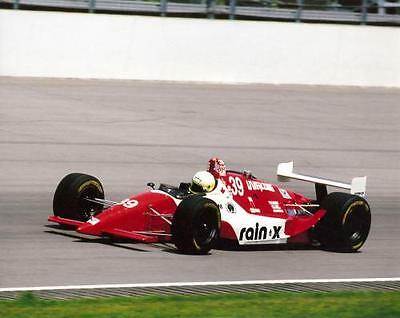
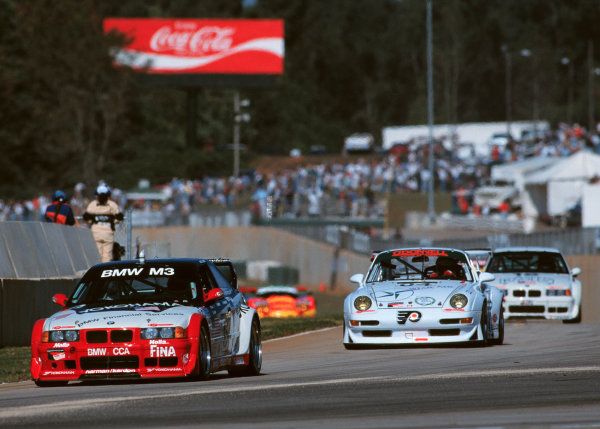
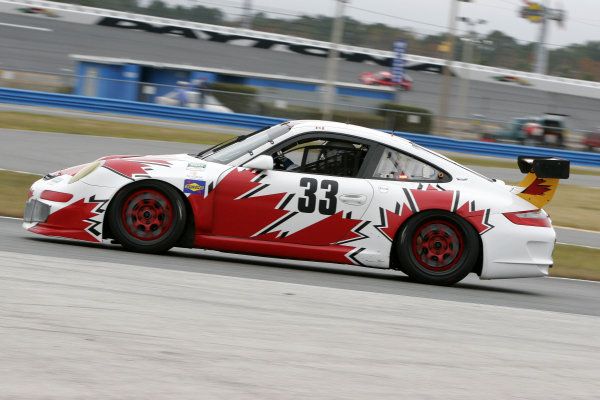
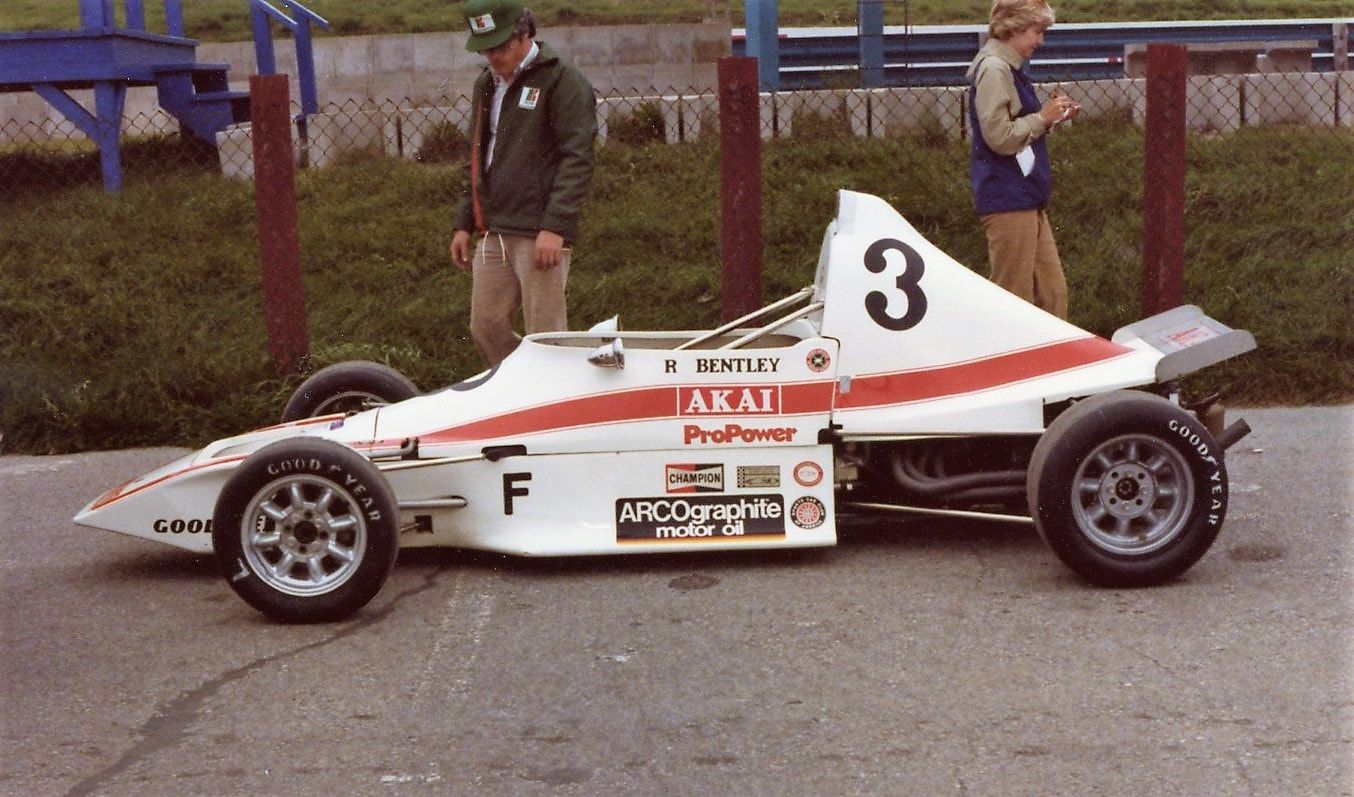
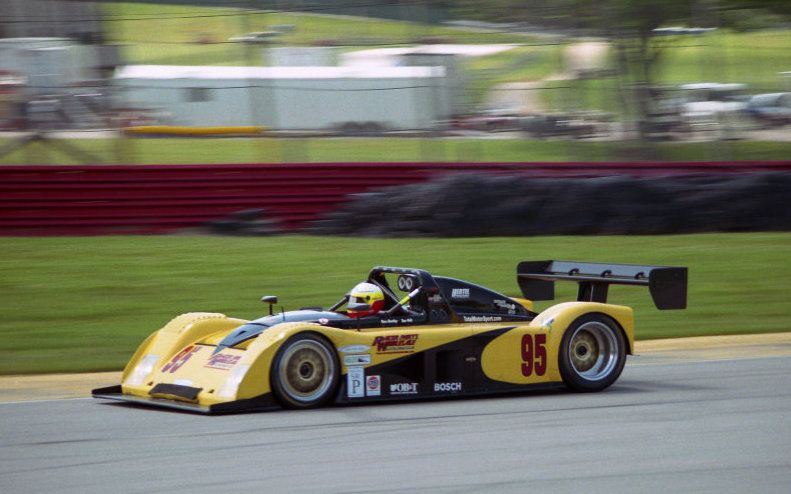
Some of the cars Ross has raced throughout his career. Credit: Mark Windecker
A lot of people will know you through your Speed Secrets books, I think the first one of which was published in 1998. When did you start coaching, and how did the idea of writing those books come about?
To take it back a little way, the very first thing I did in racing was go to a Jim Russell school in Willow Springs Raceway in California when I was 18 or 19. When I finished the school they asked if I wanted to stay and become an instructor. That was the weirdest thing to me: really, teach this stuff? One of the instructors pulled me aside and told me not to do it. He said ‘if you want to go racing, go racing; don't get stuck here in a school instructing’. But it planted a little seed. As every race car driver knows, you're often poorly funded, so you're always looking for side gigs. I found that teaching drivers and helping them learn what I've learned was at times as rewarding as driving a race car. So I started doing that through the 1990s.
I started a school at the local race track in Vancouver, Westwood - which no longer is there - and each year would write a little bit of a handbook or handout for students. It kept growing, and then when I was racing Indy Cars, after every race I would just write all my thoughts down: everything that I learned, and how it might apply to other drivers. Eventually it became this huge document that I gave to a journalist friend of mine. He sent it to the publisher at Motor Books International, and they came back and said they wanted to publish it. I'm pretty sure that in high school I would have been voted the least likely person to ever write anything in their life!
I also went through a period of time in Vancouver writing for the local newspaper, driving tips for the average person. For four or five years every week I had to write a thousand word column, and that forced me to learn how to write. It was one of the best things that ever happened to me. By the time the book was finished I was thinking it was incomplete, and we needed to do something about the mental game. It just kept growing from there. I read a fantastic quote the other day: ‘if you think you can learn things by reading books, you ought to try writing one’. I was like, that is it: the reason I write is to clarify my thinking. Everybody who I have ever written anything for, and who has read anything I've written, I have to thank them for helping me to learn by doing that.
I wasn't actually aware that the Speed Secrets books were written hot off the track, day by day!
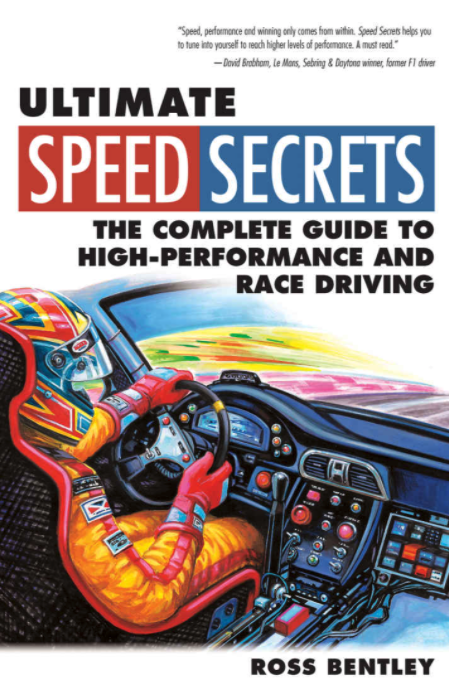
You mentioned driving coaches. What are the signs of a good driving coach? Are all fast drivers able to teach, or have you found that teaching is a skill that not everyone has?
Answering your second question first, does being a fast driver make you a good coach? Not necessarily. I know some incredibly fast drivers who are terrible coaches. They don't really understand what they do, and they're not able to communicate what they do or what somebody else should do. So just being a fast driver isn't necessarily a good thing. Having experience is however a benefit as a coach. If you have got very little experience driving a race car, that's a downside, because it's hard for you to relate, it's hard for you to understand, it's hard to even have empathy for the driver. So having some level of experience helps; it doesn't need to be at the highest level though, and you don't need to have won world championships to be a great coach.
I think if you look at the best coaches in every sport, they weren't necessarily the best player or the best athlete in those sports. In terms of what makes a great coach, I think that the first thing that comes to mind is that to be a great teacher, you have to be a great learner. You have to be passionate about it. Certainly when I made the decision to make coaching my profession, over something I do on the side, I spent every waking hour learning, teaching myself, getting experience, and going through courses on how to be a great coach in many different areas that then I could relate back to motorsport.
The other part of that is the motivation. I want to be careful saying this, but there are a lot of underemployed race car drivers who call themselves coaches, and I don't think they're necessarily proper coaches. They're doing the job, but they're not necessarily there for the right reasons. I think the best coaches I know reached a point in their life where they realised they get as much of a kick out of teaching as they do driving, and as much passion about helping a person as you do about helping myself. Being a race car driver is a selfish business. You have to be selfish in a good way. It's all about me driving the car. If that's the way you think as a coach, you're not going to be as successful as somebody else who says, no, it's all about you as a driver. Some people are not able to make that switch, so I think that motivation is critically important.
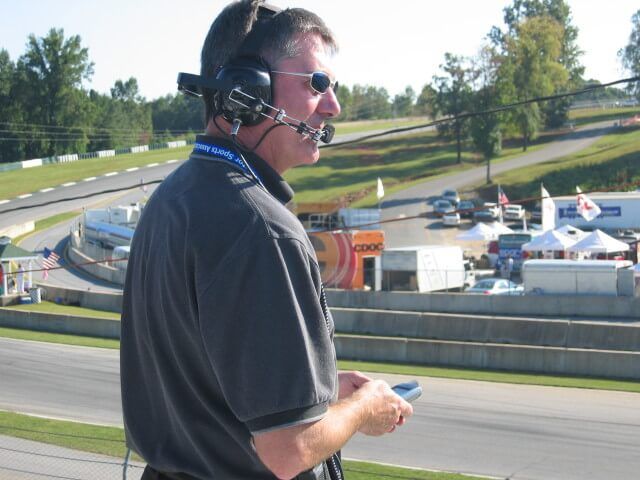
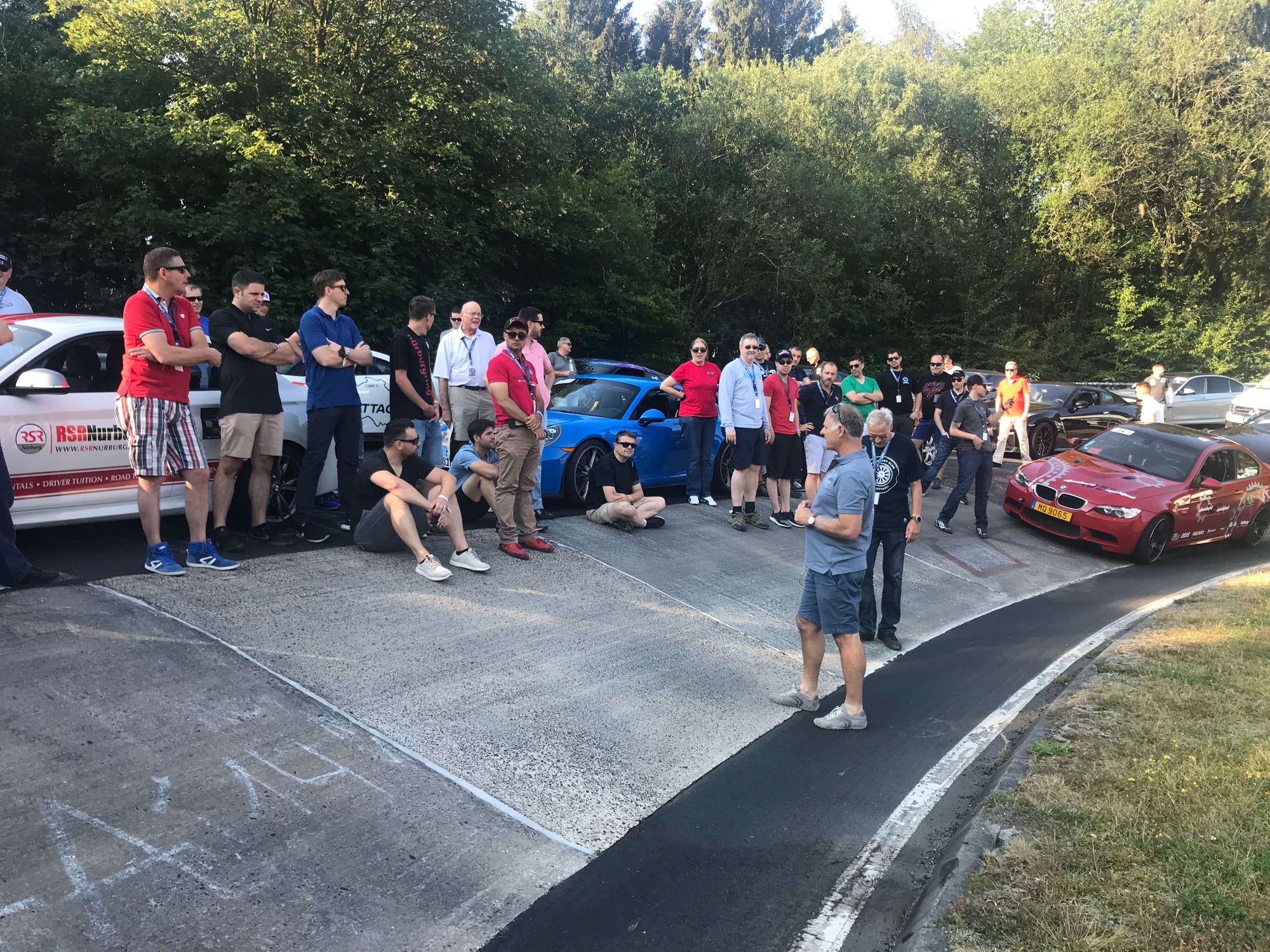
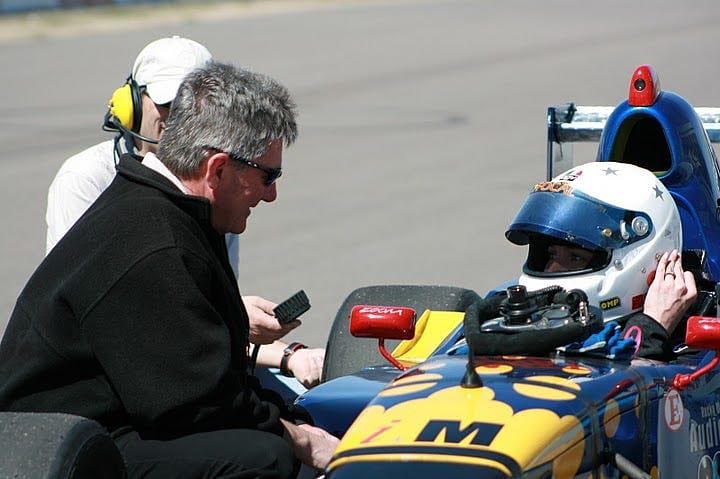
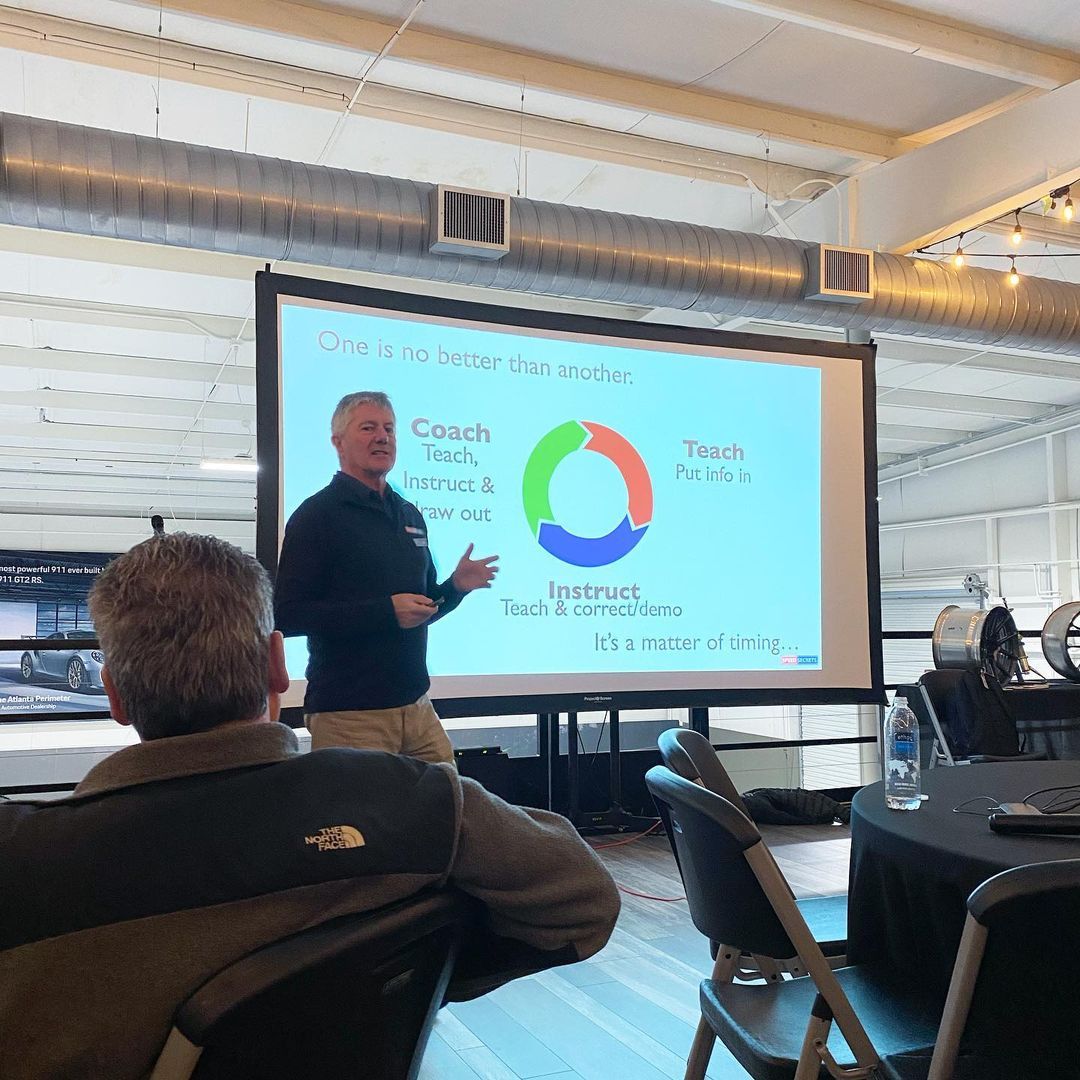
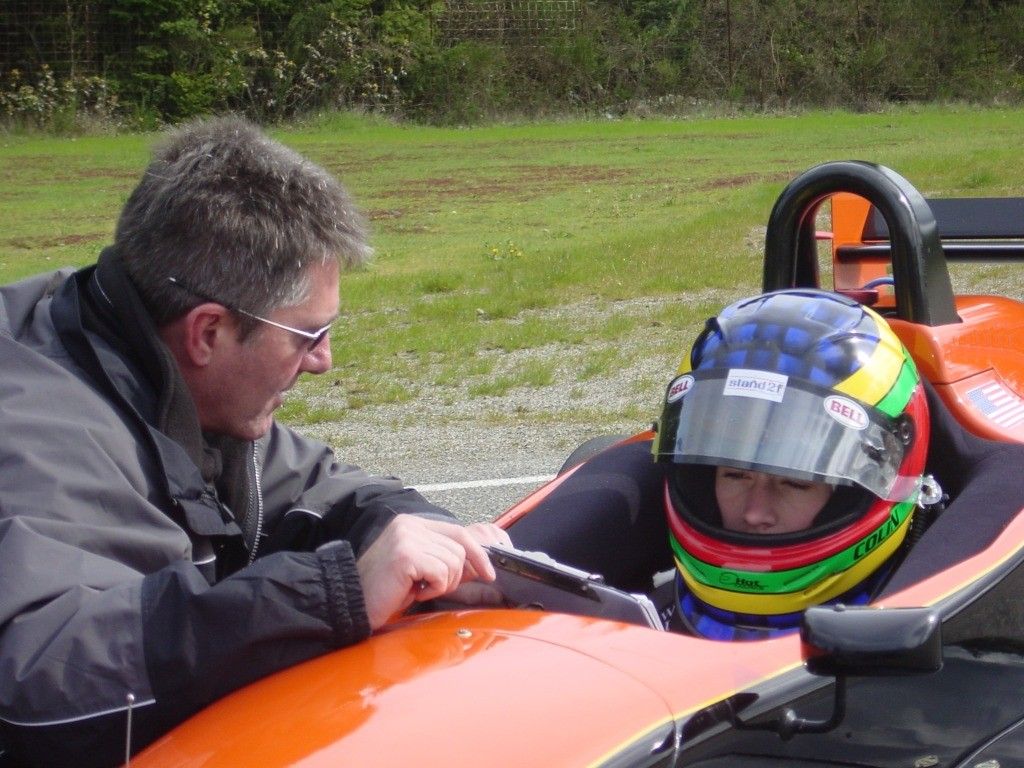
Ross is a speaker at various coaching events. He also coach drivers one-on-one and usually organises yearly trips to the Nurburgring with some of his students.
I know a lot of our listeners, especially given the pandemic, are now keen to go out and maybe do their first proper track day or race series. How should you approach those so that you can get the most out of them? What sort of mindset should people have?
I'm a big believer and proponent of the whole idea of a growth mindset - the idea that we're always open to learning, our brains are plastic, and that they can grow and improve. The thing that shocks me at times is the number of drivers that come to a track for their first time or their third time, and they have done very little homework. Nowadays it's so easy: spend 20 minutes on Google, watch some YouTube videos. Not all of them are perfect, but there is a lot of great stuff out there. Go and read up. I've seen drivers come to the track, you mention the word ‘apex’, and you can tell they don't really quite understand what that is, or understeer and oversteer. Our sport is so expensive for the money you put in per lap; why not make the most of every single one? A little bit of preparation will go a long, long way.
The second part is related to that. There are people out there, coaches and instructors, who live for the thrill of seeing you have that smile on your face when it clicks, and that ‘aha’ moment in the car. They want to help you. Use them and abuse them - reach out to them! Yes, the sport is expensive, and sometimes coaches and instructors are expensive as well in some ways, but what I can tell you is: what you learn from a coach in a day will not wear out like a set of tyres will!
Taking the mindset theme a bit further: how important is the mental game in performance driving? Where does it intersect with motor skills and physical fitness when you're out there on the track?
I think it's massive. Coming from my background of a very low budget, it was one of the areas that I looked at early on in my career, because it was something that doesn't cost a lot to work on! All you really need to do is look at the top athletes in every sport and ask what is the difference? Nine times out of ten, it's what's going on in their head. What makes Lewis Hamilton so good? Sure, his skills are incredibly well-developed, but where does he store those skills? He stores them in his brain. So if he doesn't access them at the right time in the right way, he's not going to perform at his best. One of the things that he does better than most, and some say all at times, is he accesses those skills on a more consistent basis better than anybody else.
The mental game is absolutely critically important. It tends to be not as focused on however, because I could sit here and I could talk to you about the lines for a corner, and I could draw you a picture of them. I can talk to you about understeer and oversteer and load transfer in the car; they're all physical things that you can feel. How do you see pictures of what's going on in your brain? It's more difficult to put your hands around and really work on, but the drivers that do are the ones that consistently perform at their best.
Is this where we talk about a flow state? We had Stefan Johansson on a while ago and he described a kind of pure focus where everything else melts away.
Good old Steve Johnson! I think with every driver that's been at Stefan’s level, they're better at explaining it because they've experienced it a lot more, and it's one of those things that if you've experienced it a few times, you might recognise it when you see it, but you don't know how to get there. Part of my coaching is generally helping drivers get into that zone or flow state more often.
To me it's a little bit like you're driving the car on autopilot. You're trusting your subconscious brain to drive the car. With all of the programmed skills that you've developed through repetition over time, you no longer have to think about them in a conscious way. It's not like you're coming to the brake zone thinking, ‘okay at the marker I'm going to apply the brakes, and then I'm going to down shift, and then I'm going to down shift again, and then I'm going to ease off the brakes as I turn the wheel’. You don't think that because you can't consciously think fast enough. So you just trust your subconscious to run the programming while your conscious mind is sitting back. I think about it as having a camera looking over your shoulder and watching what you're doing; it will ask ‘what if you braked one car length later here?’ or ‘what if you turned in earlier here?’. You're driving the car on autopilot, trusting your subconscious, while your conscious mind is aware of everything that's around you to help you improve, because if you didn't have that awareness, you would never improve. When you get that right balance between the subconscious and the conscious, that's a big part of flow, and a big part of being in the zone.
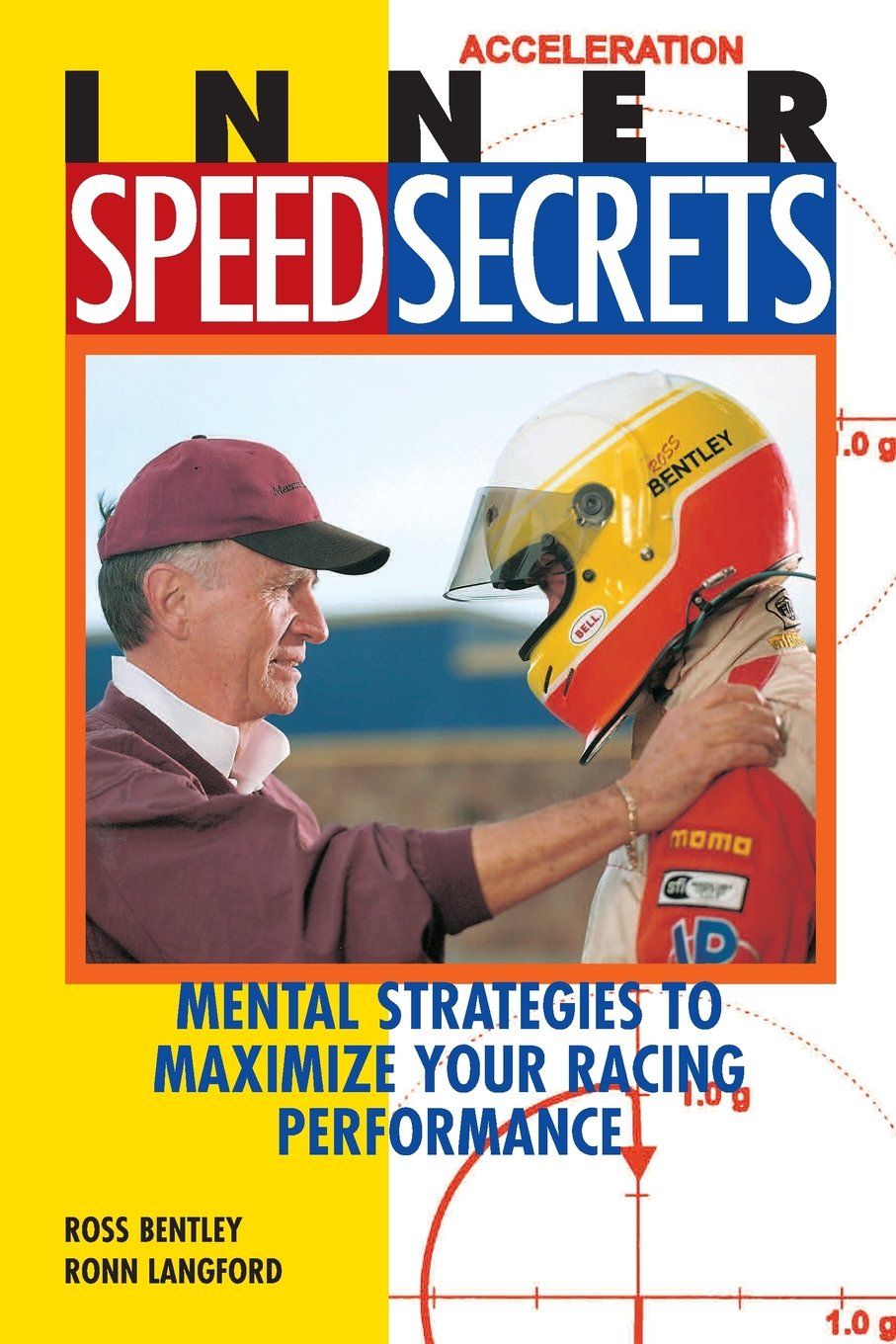
I think one of the things that really throws this into relief is overdriving - when you're trying too hard, and your conscious and subconscious are in a bit of a fight to do better while not getting worse. How do you stop doing that?
I'm a big believer in having triggers, i.e. words or phrases that trigger different programmes. The way you do just about everything in your life is determined by a mental programme; the way you walk, the way you talk, the way you turn the steering wheel. You've developed those programmes through repetition, and there are certain things that trigger reactions, right? Somebody says something to you in a certain tone and you react emotionally, for example. Well, you can use those triggers in a very deliberate way.
One of my trigger phrases is ‘car dancing’. To me, when I'm driving the car at the limit in flow, in the zone, it's like I'm dancing with the car. We're moving together, flowing around the track, and it's a balance between a sort of a ballroom dance and a punk thrash. There are times when you need to grab the car and make it do what you want, and other times where you need to just work with it and flow with it. It's finding that right balance, and that balance changes sometimes depending on how the car is working and the type of track you're on. You might have to grab it by the scruff of the neck a little bit more sometimes, other times you need to just relax with it a little bit more. You're constantly trying to balance those two, and for me, I just say the phrase ‘car dancing’, and that triggers it for me. For other drivers the trigger might be ‘smooth hands’. It might be ‘attack’.
If you build these trigger phrases or trigger words and you use them over and over again, and you practice them in your mind beforehand for different scenarios, you will have the ability to dial your responses up and down to get the right balance at that moment in time. One of my favourite trigger phrases that I agree to use with a lot of drivers, especially those who are too analytical and think too much about what the data trace is going to look like and how the video is working is ‘drive, stupid’. Just turn your brain off and drive. The very best drivers in the world, you can see them at times, especially during qualifying, where they are very analytical. They're thinking about every last little detail. Then they just let go: now it's just time for me just to drive, let my subconscious programming drive the car, and sometimes that phrase of just, ‘drive, stupid’, works!
When that happens, what does that fast lap feel like?
It's kind of magical isn't it, when it's working. I think it’s important that drivers get clear on what it feels like, and replay that feeling. I have never met a driver where I've asked that kind of a question and they didn't have this massive smile on their face. First of all, you're having fun. It's not jumping up and down laughing, but it's enjoyable. Again there's a balance. It's not effortless like cruising down the highway, but it's not that try-hard mode.
You feel confident that you know what's coming up ahead. It's almost like you can predict what's going to happen. You're focused, but not hyper-focused. You can zero in on the details, and yet you pick up stuff off to the side. You're aware of other cars around you, and there’s a balance between being very focused on particulars, and a broad focus. Time changes; it doesn't feel like you're rushed. Things can be happening quickly, but you feel like you’ve got all the time in the world, you’re just playing with this. Maybe that's what it is - being that five year old again, playing with your little model cars in the mud. I also don't want to go too ‘woo woo’ over here, because at times you've got to grab the car. I know drivers who are so caught up in this ‘smooth is fast’ thing that they're smooth but they're not really fast. Sometimes you just need to dial up that attack mode a little bit more. Where a guy like Lewis Hamilton is so great is that he can dial it up and be in super attack mode, but he still does it in a smooth, calm way. That's pretty special, and not everybody is going to get to that level, but if you have that mental model in your brain, the likelihood of getting closer to it goes way up.
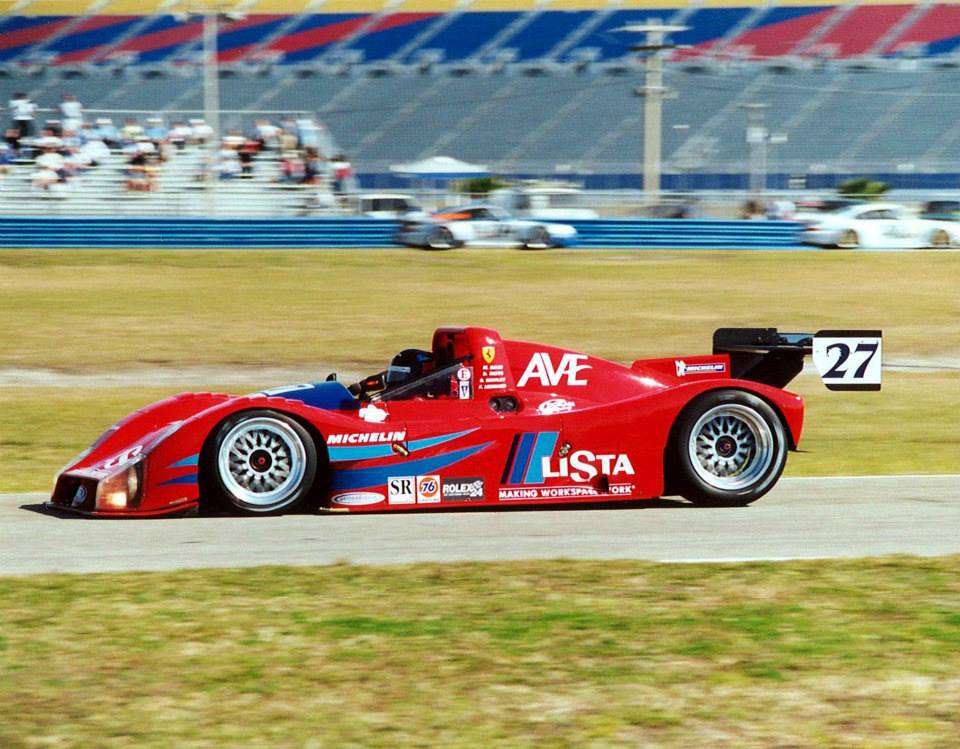
Turning to cars now. You've raced a lot of machinery in your career, Indy Car to prototypes, the Ferrari 333SP, factory BMW M3s, and a whole lot of client cars I'm sure. What have the stand out machines been for you?
Can I tell you what my favourite race car is? The next one I drive!
You mentioned the Ferrari 333SP, just a beautiful car. It was Ferrari's return to prototype sports cars in the late ‘90s, and I drove chassis number 3. I understand chassis 1 and 2 were prototypes at Ferrari that never got raced, so that was pretty special, and the sound that V12 made was just incredible. It was a beautiful car and I loved driving it. Interestingly, when I think about all the cars I've driven, my first real race car was a 1977 Tiga Formula Ford. Maybe seven or eight years ago I got to drive a ‘79 Tiga at an event, and it's funny how, even after 30 or 40 years, I felt like I was back home again. The car felt kind of rattly and spindly and all that but it just felt so good. I don't know, once you love the feeling of driving a car, it doesn't really matter.
Quick aside - each year another instructor and I take a group of drivers from North America to the Nürburgring and Spa, and we have choices of driving cars from the Porsche GT2 RS to every kind of BMW and everything in between; Nissan GTRs, Renault Meganes, etc. When people ask me what my favourite car is, I say ‘give me the Renault’. And it's that - I'd rather drive a slow car fast than a fast car slow. At the ‘Ring, I’ll hop into a GT3 RS or whatever but you're leaving just that little margin, because it's not the most forgiving circuit in the world. When I drive the Renault I drive it absolutely flat out. I went out a few years ago to collect two laps for some data;I did two laps in a row, and they were four tenths of a second apart around the Nordschleife. There's no way I could have done that in a super hyper fast car, because I would have left a little margin here, a little margin there, and it would have ended up being a big difference. This car, this Renault, I drove flat out. There was nothing left on the table, and that was one of the most fun experiences I've ever had on a race track. Knowing there was nothing left just felt so good.
I think of all the cars I've driven, I have had as much fun in slower cars that are not as cool as a Ferrari 333, or an Indy Car, or the factory BMWs that I drove. Being able to just drive them well at the limit, it's just a blast, and it brings that magic that we talked about earlier.
I guess to keep yourself sharp and learn new skills, something like a MX-5 can still teach you something?
There's certainly an argument to say that for learning performance driving, you should drive a car that you're willing to see go off a cliff and say goodbye to it. You're going to learn more from that car than you are a $200,000 car where you’re thinking ‘I don't want to scratch this, I don't want to hurt this’. The other part is that cars with lower limits make it easier for you to work at driving the limit. A few weeks back I spent a week driving a Porsche GT3 RS at a variety of tracks in an event called One Lap of America. It is just such a beautiful, awesome car, but the limits are so high that it's hard to get up there, unless you're going to drive it like you own it. Unless you're racing that car and you can afford to race that car, it's tough for you to get to that limit all the time.
I'm a big believer in driving cars that have higher slip angles, less sticky tires and a car that will move around a little bit more, because you get used to that sensation of what the car is doing and what it is telling you. I like a car that is maybe a little less forgiving. A GT3 RS is very forgiving - you make a little mistake, you just plant your foot a little harder on the throttle and you make up for it. You're in a MX-5, you make a little mistake, and it will take you five laps to gain that speed back again! So it teaches you more in that way.
There's so much to think about there. I thought we would end with some quick fire questions. The first is: what is your greatest racing or driving memory?
Winning anything has been the highlight in terms of the driving part. Winning the 2003 Daytona 24 Hour race in a car that we should not have won in was maybe the most satisfying. I'm not saying it was the greatest memory, but we won that race by being smarter than everyone else. I drove the last stint of the race with no brake lights, with the threat of being black flagged. Every single time I got to a brake zone, I was reaching up and turning the rain light on and then off, driving like that for an hour and a half to simulate the brake lights! If we had gotten black flagged we would have lost. So that was very satisfying.
I have had some amazing coaching experiences that are just as rewarding. One that stands out a little bit is a weekend when I was actually at Le Mans coaching a first-time three driver team including a fellow named Patrick Dempsey (somebody might have heard of him before!). Did they win? No they didn't. We had a great event, but that same weekend one of the drivers that I had coached since he was 12 years old, Colin Braun, was also racing in NASCAR. In the early morning at Le Mans I get a phone call, and it's Colin at the Michigan International Speedway; he had just won his first NASCAR race and he was calling me from Victory Lane. Separately I had also been working with a flat track motorcycle racer just on their mental game, and their big race of the year in the US is called the Springfield Mile, a one mile oval track on the dirt. He called me later that afternoon on the same day saying that he had just won his race by the biggest margin in AMA (American Motorcycle Association) history! So in that one weekend, I'm at Le Mans, and I'm getting victory calls from a NASCAR driver and a motorcycle racer. That was a pretty cool weekend!
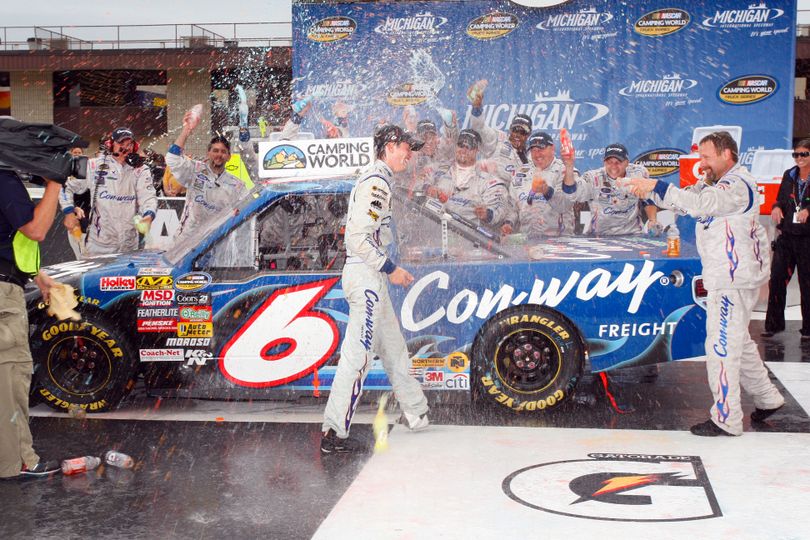
Second question: what are your top three race tracks in the world?
I've been asked this question in different ways, but in no particular order: Phillip Island Grand Prix Circuit, Australia is just an awesome place, and the fact that it's on the island and you come through Turn 2 and you're looking at the ocean is way cool. Then Spa, because it’s Spa.
Say no more!
And lastly in North America: Mosport, the Canadian Tire Motorsport Park. How do I put this politically correct… you have to be pretty brave to get around that track, and when you put a lap together there, you go home thinking, man I did my job today!
I hope our listeners are taking notes. Last question, and maybe it's a bit of a cheeky one, but what for you is the greatest myth in performance driving that you've come across?
Wow, I just finished writing an article about that and there was a long list of myths! Can I pick two?
The first one would be that the best drivers in the world are just more naturally talented. It's amazing how those ‘naturally talented’ athletes… seem to work harder at developing their talent than anybody else does! The best race drivers I know, I'm not saying they weren't born with something special, but I think the thing that they're born with that's really special is the work ethic to want to constantly improve. I think that's the biggest thing. I have seen so many naturally talented young drivers who think that they're going to make it on natural talent, and they don't. So it's not only a myth, but it's a sad thing to see, because there's a lot of opportunity missed.
The second one is late braking - “late braking is going to win all the races” and so on. No, it's not. It's what you do at the end of the brake zone, with how you release the brake pedal and how you manage the car entering a corner, that makes the biggest difference.
I'm sure there's much more of that in your books and articles, and I'm really looking forward to reading that article. Sadly we're up on time now, so I'd just like to thank you so much for such a wonderful interview.
My pleasure, any time that I get to talk about driving and coaching, I'm there!
Thanks very much.
To find out more about Ross and Speed Secrets, you can visit their website at https://speedsecrets.com/.

